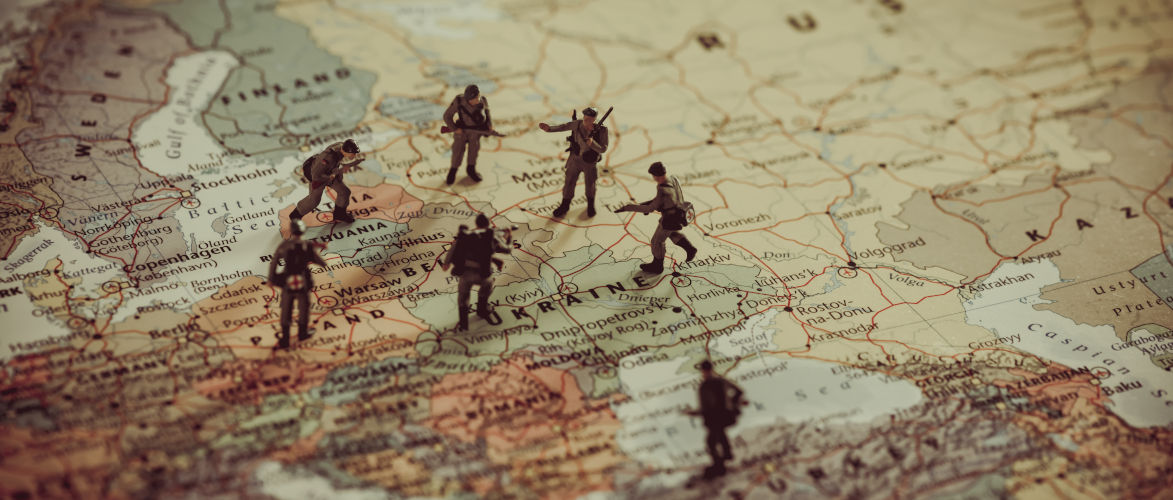Boris Johnson wins the election in Great Britain and paves the way for imperial politics.
By Christiane Borowy.
The USA has long since replaced the former empire of Great Britain. That hurts. Why also should the EU be interesting for the British rulers if one can keep at least a little of the imperial splendour by politically appeasing the USA? The main media, mostly in transatlantic hands, helped strongly and influenced public opinion so that finally the party that could best enforce imperial politics won.
Trump, as the main media reported in the run-up to the election, saw Boris Johnson as a “great prime minister” and promised him a new trade deal with the US if Britain leaves the EU. He is, of course, one of the first to congratulate after the election and, like all congratulators from Macron to Merkel, is positive about the outcome of the elections. Even if it is sometimes claimed that the reactions to the election were “split like never before” and did not correspond to the resounding victory, this is only media waste and by no means a criticism of imperial policy.
On the contrary: German media and politicians see and saw hardly any problem in Britain’s close relationship with the USA, and logically also in the USA’s electoral interference, and they tend to regard the British’s withdrawal from the European Community as an eccentric British peculiarity, which above all creates organisational problems, because implementation can now seemingly proceed quickly from the beginning of January 2020.
Boris Johnson twitters after the first forecasts after the election “We live in the greatest democracy in the world” (1). This raises the question of where the future prime minister of Great Britain actually lives. In a weekly exchange with his monarch he can explain that. If a constitutional monarchy is to be the greatest democracy in the world, then this could be become exciting. And there you have not even reached the far more important question of whether democracy is really there where it is written. The journalist Julian Assange, also known as the “British version of Guantanamo Bay” (3), who is imprisoned in the British prison Belmarsh and tortured according to UN reports, will have his own perspective on this.
But who cares about such “little things” when the new prime minister can triumph over the fact that he was elected by a large majority and the conservatives will now hold the majority of seats in parliament? Who cares that the British no longer want to integrate into the European Community, but rather want “great free trade agreements” with the US?
“Tories” is the name given to the Conservative Party in Britain. Seldom would one say “the conservatives” in Great Britain, and so the term softened the aspired conservatism a little. The German press also adopts the term. Conservative comes from conservare and means to preserve. Since the political dimension of the term conservatism has been particularly influenced by Great Britain since the 18th century, it is worth taking a look at what conservative means at all. Wikipedia has a lot to offer:
“In Anglo-American conservatism, on the other hand, the individual plays a central, positively evaluated role, which is to be strengthened by national identity and national symbols through the expression of common values and goals. On the other hand, the state is viewed negatively as the embodiment of anonymous power and lack of freedom. Security here is the result of individual strength and assertiveness; individual responsibility and private economic principles are positively connected with conservatism.”
Jeremy Corbyn has been a thorn in the side of his political opponent solely with his advocacy of a withdrawal from NATO and a peaceful foreign policy. The self-confessed opponent of nuclear weapons, who was one of the few to defend himself against the Kosovo war, which he classified as illegal, was by no means allowed to become prime minister. After all, wars are a very good way of earning money and upholding the principles of private enterprise, as the continuous increase in state military expenditure shows. Great Britain is very far ahead with 50 billion US dollars (4). Corbyn’s criticism of Israel and its policies in Palestine did not bring him any friends, but an underground media smear campaign that tried to discredit him and the Labour Party as anti-Semitic (5).
The prospect of a financial crash had prompted Corbyn to demand that oversized economic gains be reversed. On the subject of climate, he called for companies to share the cost of climate damage, and on democracy, he did something completely crazy: he realized that UK citizens weren’t quite sure whether it was a good idea for Britain not to be a member of the EU and therefore had the idea of asking people in a second referendum, which was completely absurd in the eyes of the conservatives. When he started to put the state rather than the private sector first in some areas, such as healthcare, the conservative oven was out.
It becomes clear that it was by no means a pure “Brexit election” as the media often claims. Corbyn has taken action against everything that is dear to conservatives and imperial politicians: Illegal wars, i.e. wars without a UN mandate, a ruthless economy strengthening the private sector as well as health and social policy, including the rejection of integration into the European Community.
The Guardian, when it became a threat to the conservatives, put Corbyn and the Labour Party at the forefront, clubbing them over the head and using the media power par excellence: an anti-Semitism campaign that had it all – with the support of many celebrities, such as Wikipedia founder Jimmy Wales (5).
The main German press also found Corbyn’s goals difficult in its transatlantic faithfulness and quickly designed a threatening media backdrop. For example, the world’s headline was “Labour boss: What threatens the British when Jeremy Corbyn rules” and described him as “the most unpopular opposition leader in decades” (6). The Tagesschau had already pretended in the run-up to the election that there was basically no real opponent to Johnson and thus a political alternative and that the only choice was between “plague and cholera” (7).
To act as if it had been a pure Brexit election is, however, cheap opinion making. Even after the election victory, it is still only a question of the Brexit, which is to come in January 2020. For example, the Welt headlines “The way is clear for the Brexit”. Chancellor Merkel, the focus of the media, is now discussing Brexit at the EU summit in Brussels. But the crucial questions that Corbyn had raised have been completely voted out. War, peace, economics, social justice – all of these issues are no longer of importance.
The sad conclusion: the interference of the USA in the British election campaign was effective and the media’s opinion making has worked. The British, who according to the hymn cited in the title (8) are never to be slaves and do not want to be tamed by tyrants, have elected a government that not only enslaves itself to transatlantic interests, but will continue to pursue a policy in which man and nature are exploited in such a way that it will stand up to comparison with slavery and tyranny.
Sources:
+++
Thanks to the author for the right to publish.
+++
Picture reference: Michael Tub/ Shutterstock
+++
KenFM strives for a broad spectrum of opinions. Opinion articles and guest contributions do not have to reflect the editorial point of view.
+++
You like our program? Information on support options can be found here: https://kenfm.de/support/kenfm-unterstuetzen/
+++
Now you can also support us with Bitcoins.

BitCoin address: 18FpEnH1Dh83GXXGpRNqSoW5TL1z1PZgZK










Kommentare (0)